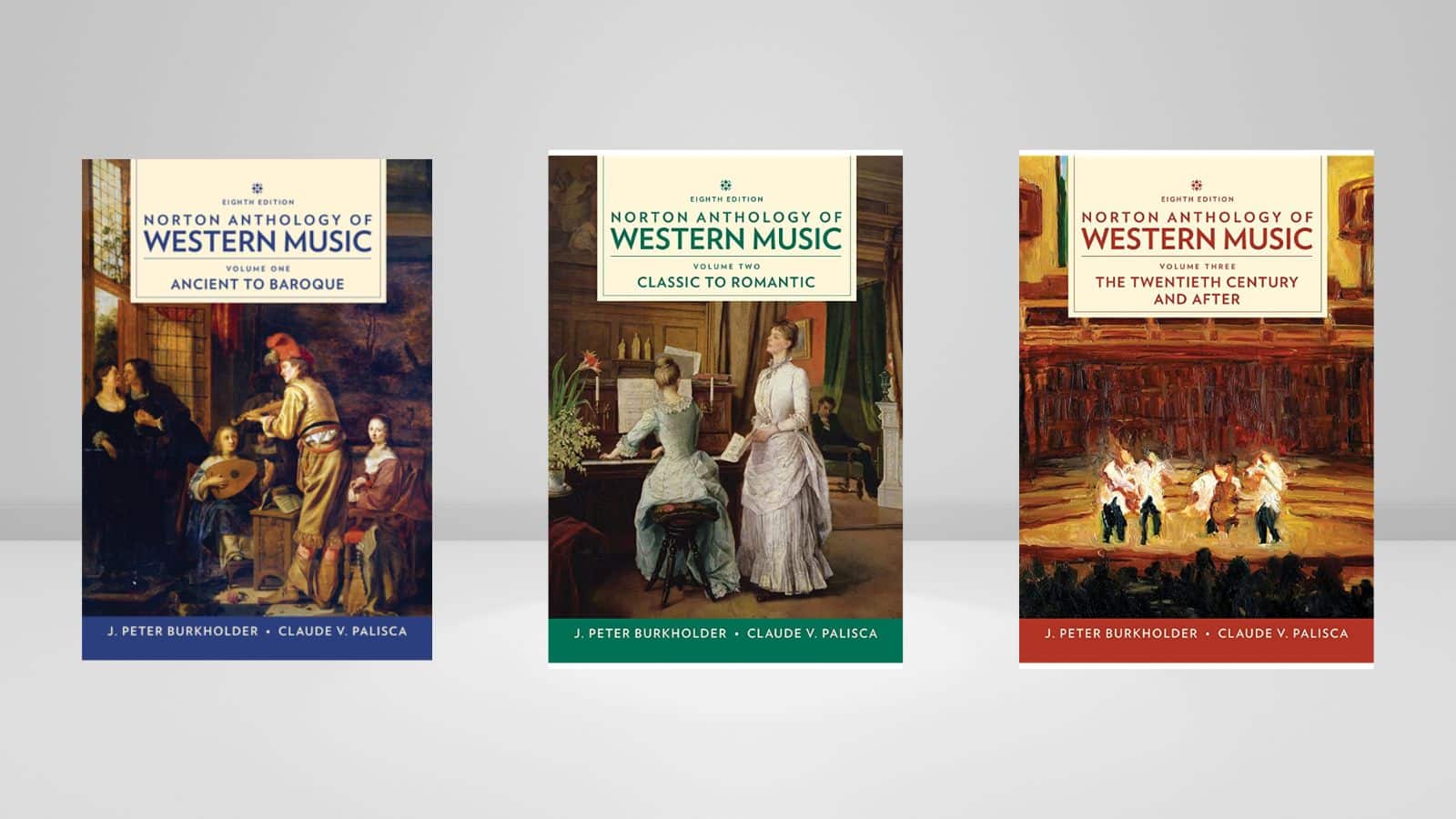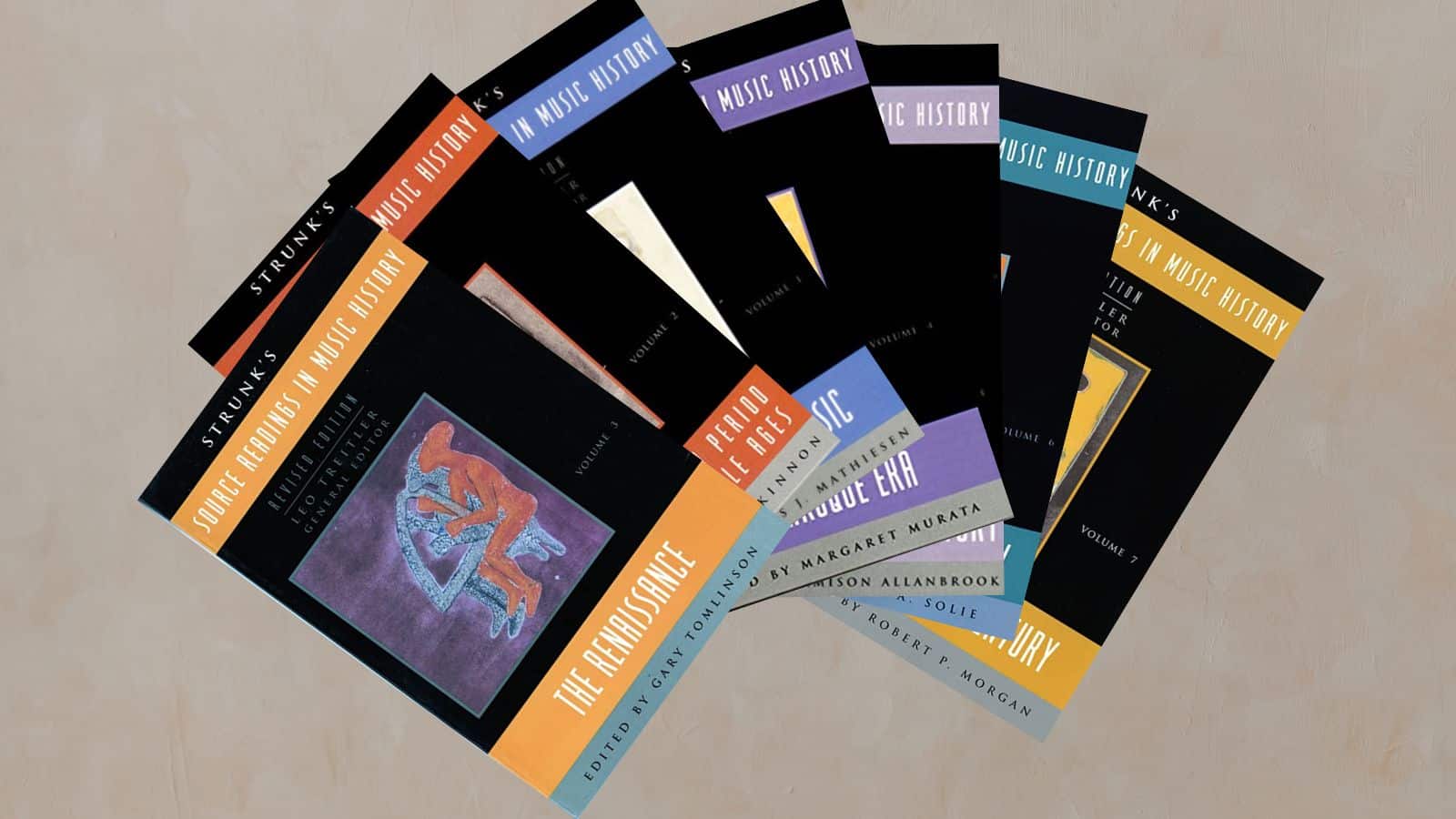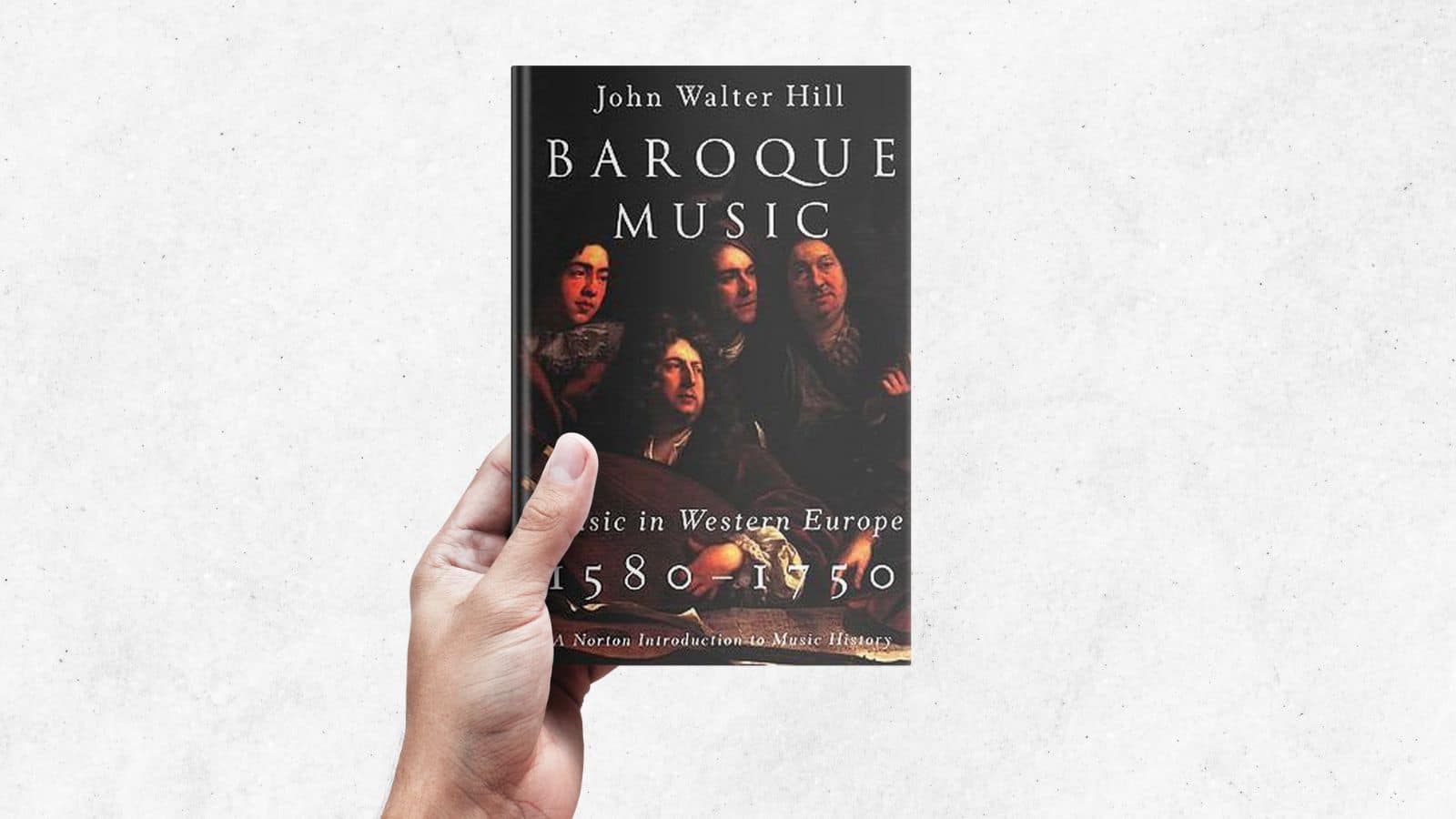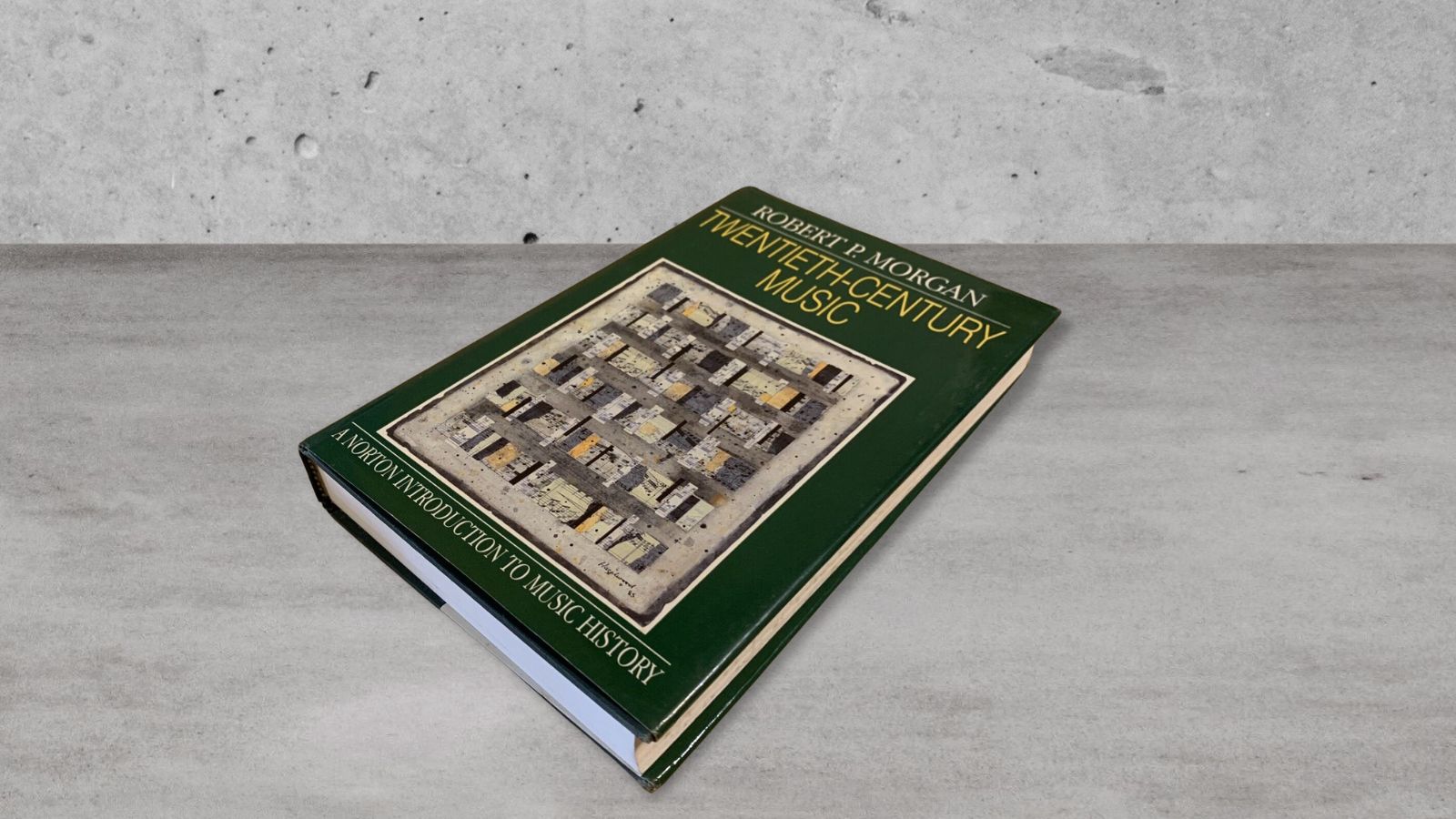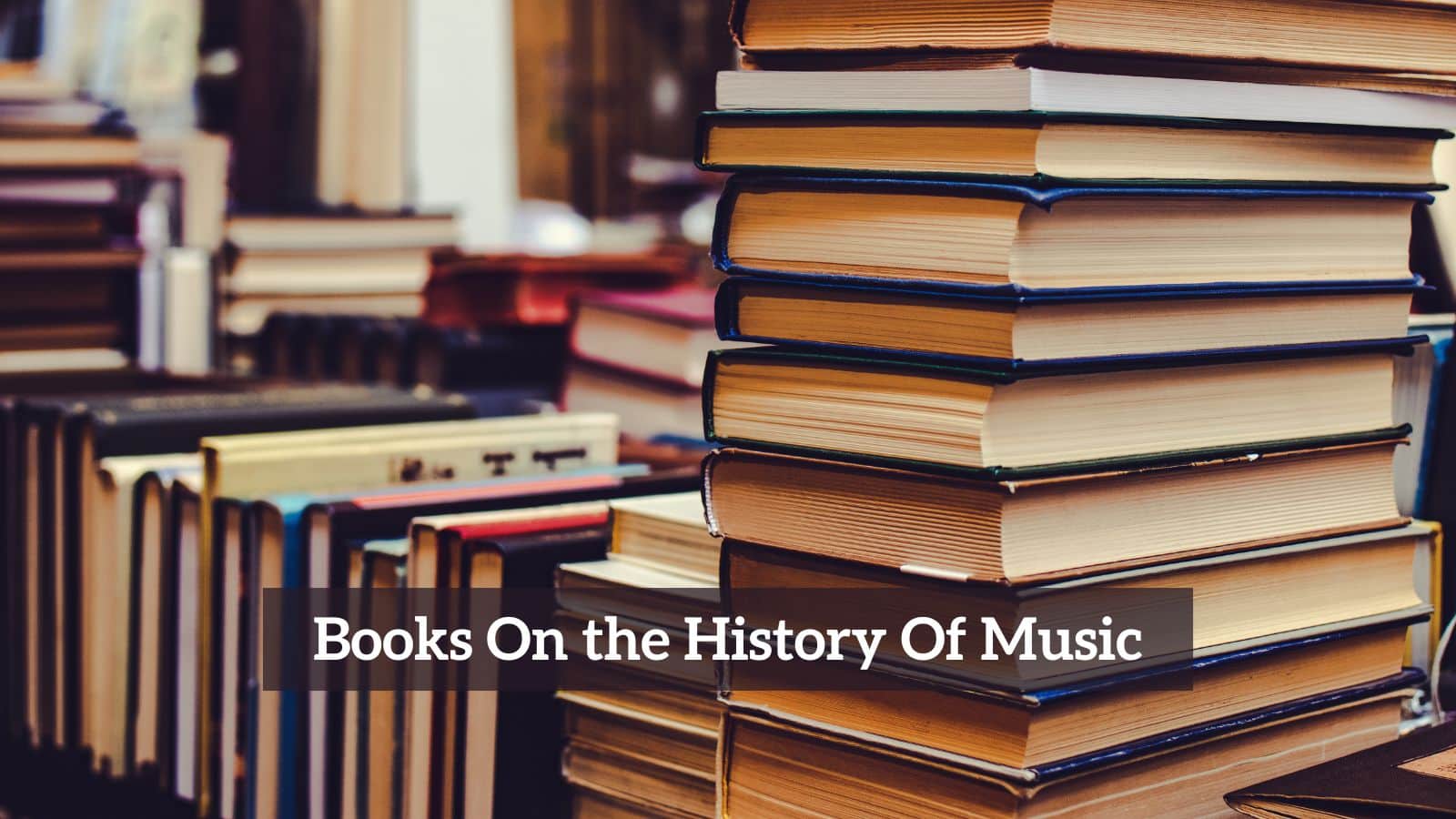
When I read this title, my mind shot back to preparing for university and ploughing through the suggested reading list. As I was about to study music, the list contained what then were considered seminal tomes for pre-course consumption.
Some of these noble books remain in my collection today such as the value of their contribution to the understanding of Music History.
Books On the History Of Music
One such book, that became a go-to for most undergraduate research was by Donald J Grout. The book in question was titled ‘A History of Western Music’ that reached its ninth edition in 2014.
Grout was a well-respected American musicologist whose book “A Short History of Opera” (1947: Columbia Press), brought him into the academic spotlight. Opera was Grout’s first passion, later he moved into the philosophical side of music and music history.
The book provides a comprehensive survey of Western Classical music and whilst the language now seems a little dated, the content is to be recommended reading.
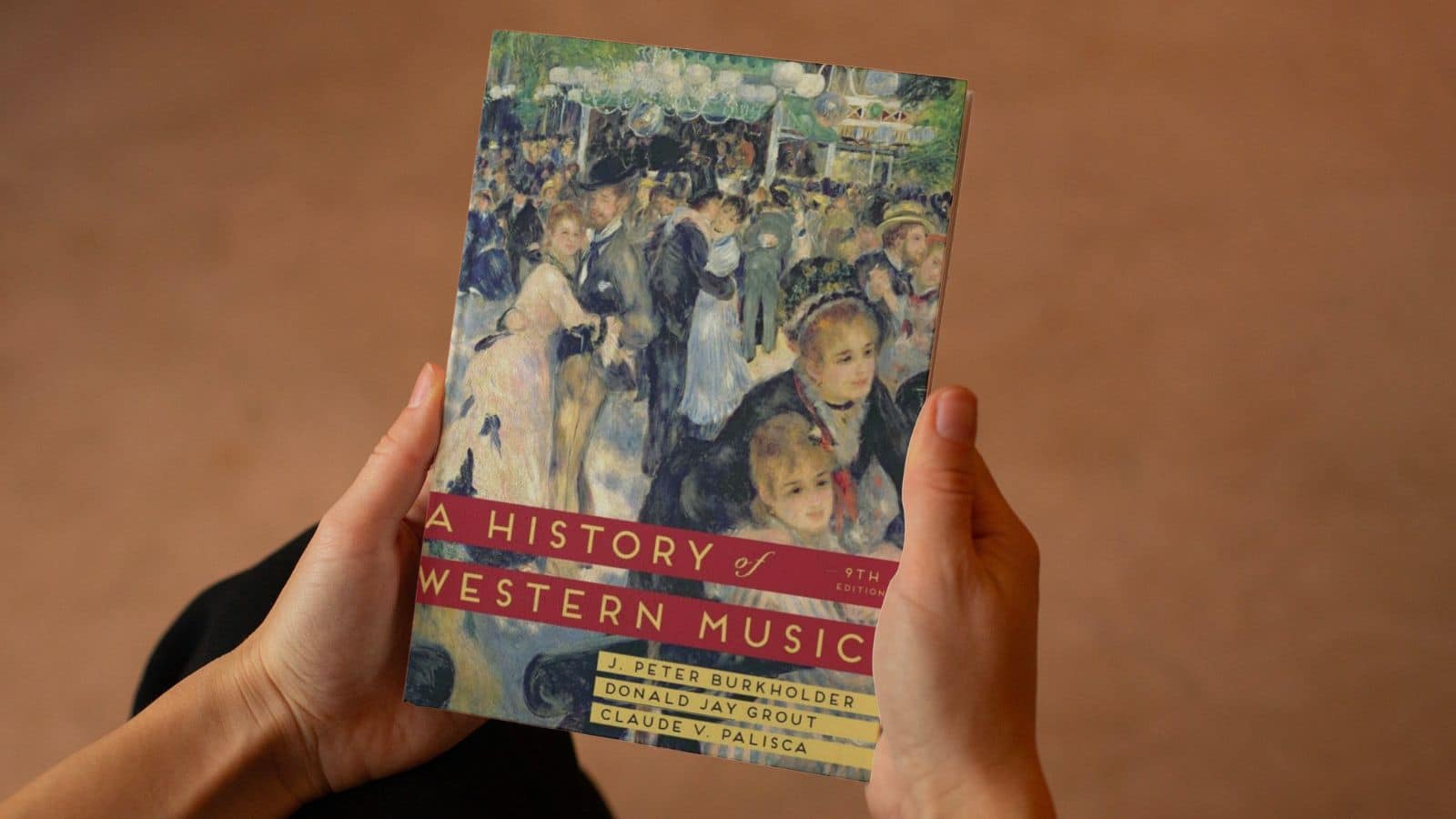
Another book that became invaluable reading for me was Paul Griffith’s work “A Concise History of Western Music”, (2009: CUP).
Griffiths is a Welsh-born author and music critic whose collection of academic texts, including the one above, are invaluable additions to any musician’s library.
This particular book is a brilliantly brief account of the times and trends of Western Music serving superbly as a springboard onto further research for those so inclined.
Many of Griffith’s other musical books orientate around the 20th Century and are equally worthy of any music lover’s attention.
Separated into two substantial volumes, Norton’s ‘Anthology of Western Music’ (2005: Norton & Company), is a comprehensive account of music from the Classical tradition.
These two volumes contain well-written information about music from the Ancient to the 20th Century. The repertoire is extensively discussed and accompanied by scores of many works that specifically support students of 20th Century music.
The addition of the scores brings the analyses to life and offers the student and music enthusiast alike, an ideal opportunity for detailed study.
If you are prepared to spend the money, or perhaps better source copies in your library, the ‘Oxford History of Western Music’, (2005, 2009: Oxford University Press), presents a thorough, even ‘magisterial survey’ of music across history.
This impressive work is available in six volumes and is written by one of the most eminent academics of our time: Richard Taruskin. Stylistic characteristics, cultural context and key theoretical concepts of music from every musical age are scrutinised.
You may not agree with everything Taruskin says but it is a perfect starting point for further discussion and analysis. I find the demonstration of aesthetic criticism find substantial and eloquent.
In a similar vein, the collected work of Oliver Strunk has been thoroughly reviewed and revised by some of the most esteemed music scholars.
This anthology of work comes under several titles that offer “Source Readings in the Music History of…”.
Norton & Company present this book either as a single, reduced volume or in seven separate volumes with the book on 20th Century music a welcome addition to the collected works.
Each scholar is a specialist in the given musical era that stretches from volume one; “Greek Views of Music”, through to the seventh volume; “The Twentieth Century”. I doubt you will find a more exhaustive and meticulously presented account of the full history of music.
There are other collections from Norton & Company that should not be overlooked, although I am aware many more could be included. Simply because of the wealth of material that can be covered, this selection of books also divides into the recognised periods of music.
Beginning chronologically with Richard H Hoppin’s “Anthology of Medieval History” (1978), the book lives and breathes the music and culture of this fascinating period.
The music is admirably explained alongside the art, architecture and literature of the age. Full works are represented in this volume and thoroughly discussed, creating an inspired picture of the Medieval world.
Next in the collection comes Allan W Atlas’s “Renaissance Music: Music in Western Europe, 1400-1600) (1998). Containing around 102 compositions from over 75 different composers this volume dives straight into the world of the Renaissance.
It makes for compelling reading with provoking historical detail and clear explanation. It tenders a perfect tool for learning about this era of Western History without compromise.
Following on from the Renaissance, we naturally arrive in the Baroque Period. This is ably mapped by John Walter Hill in his book from 2005. Music from 1580 right through to 1750 is discussed and brilliantly analysed.
It provides precious insight into numerous different, important Baroque works as well as highlighting the precise points of stylistic convention. Foreign texts, as is the practice in the Norton collection, have been sensitively translated to facilitate access to the works.
Philip G Downs takes us through the Classical period whilst Leon Plantinga sweeps us through the Romantic period of musical history. Both volumes are wide-ranging in their approach without compromising on the particulars.
Movements of key works from each era are fully explored leaving the reader in no doubt about each of the many selected works. There has been an emphasis on complete works in both volumes with a significant effort to provide commercial recording references too. This is extremely helpful.
The 1992 book titled “A History of Musical Style in Modern Europe and America” by Robert P Morgan details Mahler, Richard Strauss, and Debussy.
Charles Ives and Vaughan Williams feature too in this extensive and defining work about this tumultuous period of musical history. Analytical essays form the heart of this book offering invaluable openings into this vital area of music.
Although not a complete history of music book, a central book for lovers of Western Classical Music is Charles Rosen’s “The Classical Style: Haydn, Mozart and Beethoven” (1998: Norton & Company).
In some ways, this book provides a thorough and inspired entry point into the history of western classical music. As the title illustrates Rosen focuses his full attention on the life and works of three of the most important composers who ever lived.
Rosen’s arguments are always persuasive, rational and well-informed. It quickly becomes clear when reading this book how intimately connected Rosen is with these composers, their cultural significance and their musical magnitude.

